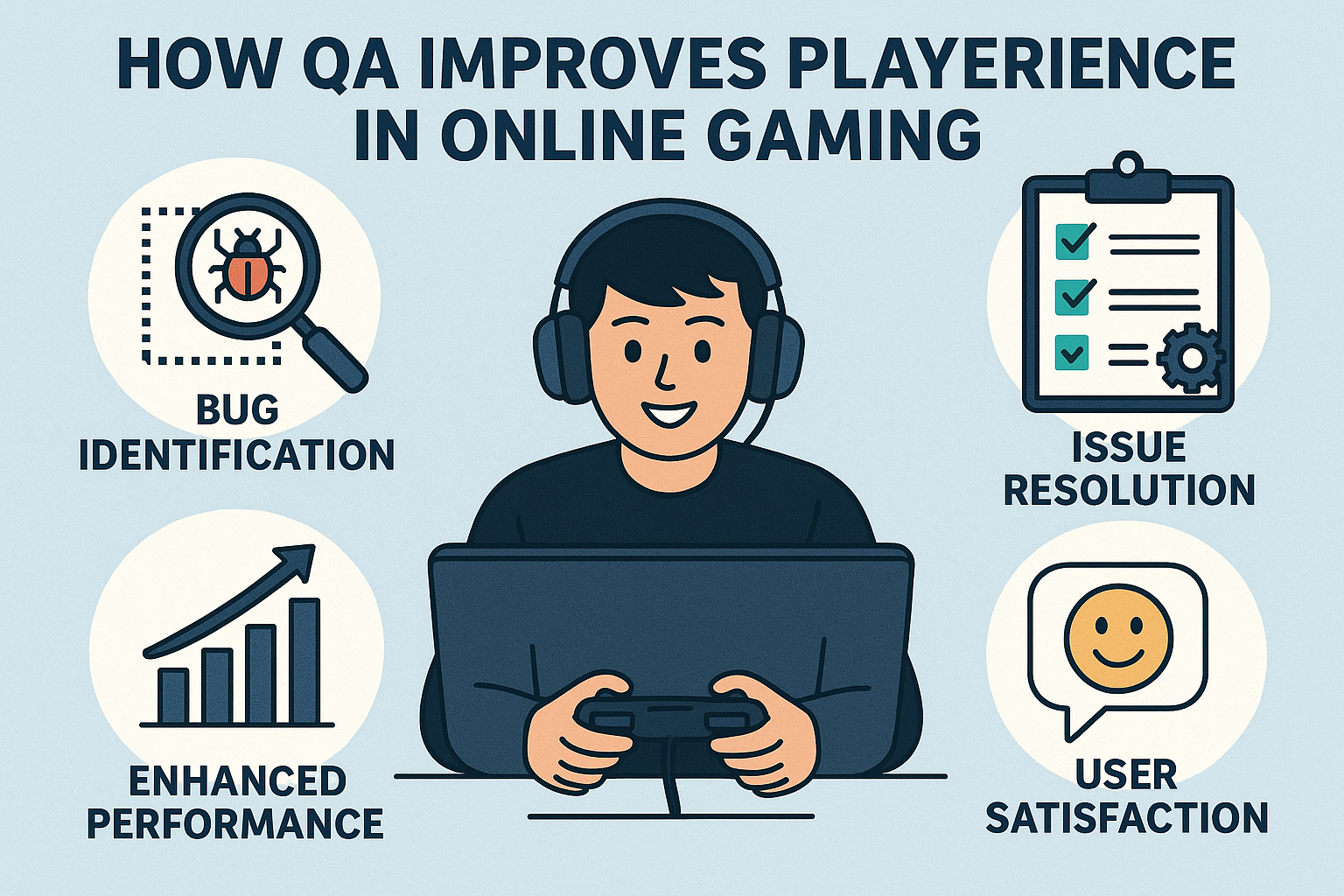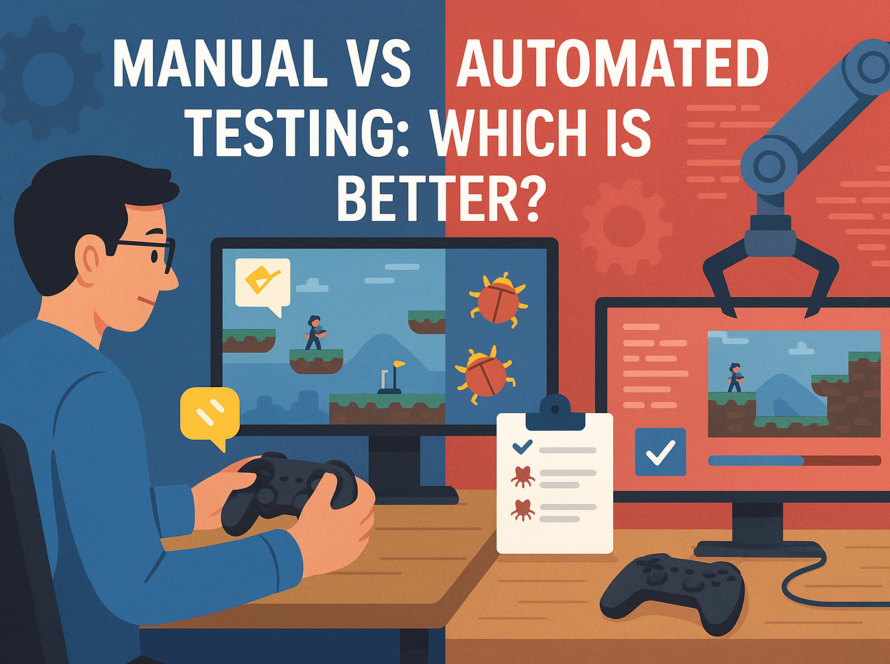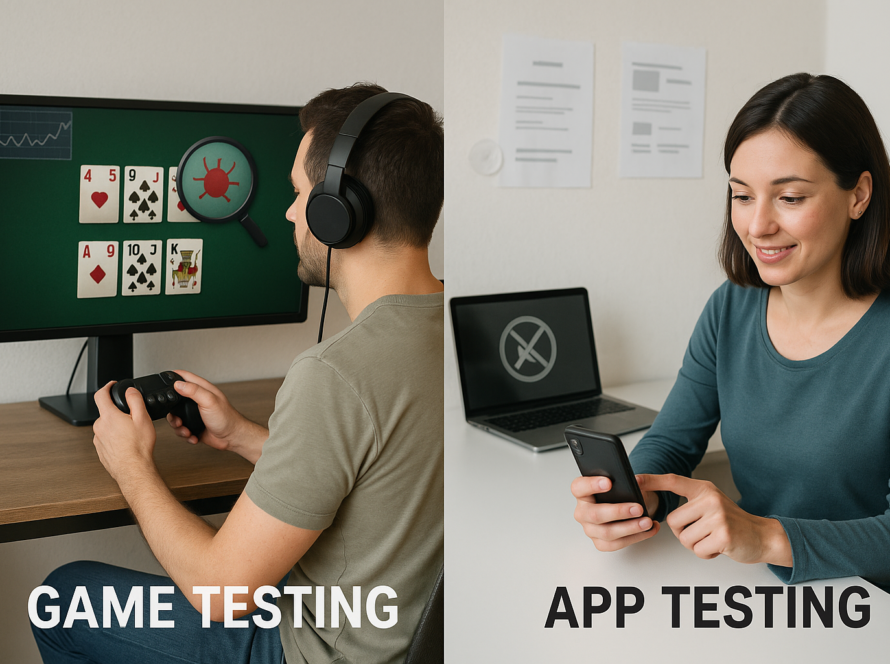How QA Enhances Player Experience in Online Gaming
In the fiercely competitive world of online gaming, where a single glitch can push players away and a smooth experience can earn lifelong loyalty, Quality Assurance (QA) stands as the invisible guardian of user satisfaction. From minimizing bugs to ensuring consistent gameplay across devices, QA in online gaming is the bedrock that supports reliability, enjoyment, and trust.
The Growing Complexity of Online Games
Today’s online games are not just code—they’re entire ecosystems. Whether it’s a battle royale, MMORPG, or a fast-paced mobile game, every element must work flawlessly. As the complexity of features increases—real-time multiplayer support, in-game purchases, seasonal events—so does the risk of bugs and poor user experience. This is where QA in online gaming becomes indispensable.
Why QA in Online Gaming Is Crucial
Ensures Smooth Gameplay
Bugs, lags, and crashes can frustrate even the most loyal player base. QA teams rigorously test every function, movement, and interaction within a game to catch issues before the players do. From latency checks to load balancing in multiplayer lobbies, QA ensures that the gameplay remains stable across all scenarios.
Maintains Fairness and Balance
Balancing a game is not just about skill levels or difficulty—it also involves ensuring there are no exploitative bugs or unfair advantages. QA in online gaming focuses on testing game mechanics to uphold fairness, preventing any feature that could be misused by players to disrupt the balance of the game.
Enhances Cross-Platform Compatibility
With players accessing games from PCs, consoles, mobile devices, and cloud platforms, it’s vital that the game behaves consistently across all. QA teams use device farms and simulators to test compatibility, ensuring that performance and graphics remain uniform, regardless of platform.
How QA Teams Improve Player Retention
Identifying Pain Points Early
QA professionals playtest extensively to simulate real-world usage. Through performance benchmarks, error logs, and player behavior emulation, QA teams identify friction points—whether it’s a hard-to-navigate UI or an unresponsive in-game feature. Fixing these early ensures a smooth onboarding experience for new players.
Facilitating Continuous Updates
Live-service games thrive on regular updates. New features, skins, storylines, or patches require immediate QA cycles. Automation and regression testing help ensure that these updates do not break existing features, keeping the experience fresh without introducing instability.
Enhancing Game Security
One major but often overlooked aspect of QA in online gaming is anti-cheat and security validation. QA testers simulate exploits, test server responses to DDoS attacks, and validate encryption protocols for payment systems or player data. This creates a safe environment and builds trust within the community.
Methods Used in QA for Online Games
Functional Testing
This includes checking gameplay mechanics, game rules, in-game purchases, menus, and all navigational elements. QA ensures that every button, action, and feature does what it is supposed to.
Compatibility Testing
This is vital in mobile and cross-platform games. QA verifies that the game runs smoothly on various OS versions, devices, and network conditions.
Performance Testing
QA teams analyze frame rates, RAM usage, battery consumption, and heat generation—especially for mobile games. They identify how the game performs under stress or prolonged use.
Localization Testing
For global games, QA verifies language accuracy, cultural relevance, UI alignment, and font support across different languages and regions.
Multiplayer Testing
QA in online gaming takes multiplayer environments seriously. From match-making systems to player synchronization, QA ensures that social, cooperative, and competitive modes work without flaws.
Real-Life Examples of QA Improving Player Experience
Fortnite regularly undergoes live QA sprints during seasonal updates. Any failed test cases are addressed immediately before pushing new content.
PUBG Mobile conducts intensive stress testing before tournament seasons to ensure server stability under heavy loads.
Call of Duty: Warzone uses QA feedback to balance weapons and fix map glitches, often based on pre-release beta testing.
The Future of QA in Online Gaming
As technologies like AR, VR, and cloud gaming evolve, QA will become more sophisticated. AI-powered testing, real-time telemetry data, and automated feedback loops will dominate QA pipelines. Still, the human touch—real testers replicating real scenarios—will remain irreplaceable.
Conclusion
QA in online gaming is not just about finding bugs; it’s about refining the experience, preserving fairness, and building a strong foundation for long-term player satisfaction. From development to post-launch, QA drives the success of every modern online game. When done right, players never notice it—because their game just works.




